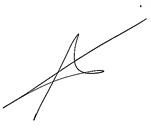MARGARET FULLER

This week, I want to talk about the first woman who served professionally as a literary critics, also one of the most emblematic journalists and an activist for women’s rights in the United States, Sarah Margaret Fuller Ossoli (1810-1850).
Educated by her father and in several institutions, she graduated as a teacher. In 1839, her good friend Ralph Waldo Emerson offered her to edit his journal The Dial, where she remained for two years and her work has been appointed her as a brilliant exponent of the Transcendentalist movement. Over the next year, Margaret wrote a book about her experience of her visits to Native American tribes, ‘Summer on the Lakes”. For documentation of this work she was permitted for the first time for a woman, access to the Harvard Library.
In fact, Fuller was fueling an awareness towards education and the right to work for women, and she also promoted reforms in prisons, the welfare of the homeless, care for the American native cultures and the emancipation of the slaves. These concerns are reflected in another important book, ‘Woman in the Nineteenth Century.’
From 1844, she worked for the New York Tribune, where she became an admired cultural critics: she reviewed books, concerts, lectures and art exhibitions. In her column she also he introduced reflections on social issues and published poetry in that same newspaper. After two years, she was sent as a correspondent to the UK and Italy. Among her chronicles, we can mention interviews of renowned writers such as Thomas Carlyle.
As loved as hated by her contemporaries (the poet Walt Whitman confessed that Fuller was an inspiration to him), Margaret died in a boat wreck, with her husband and son, when returning to the United States. Here we are some quotes that reveal her thoughts:
Very early, I knew that the only object in life was to grow.
Today a reader, tomorrow a leader.
If you have knowledge, let others light their candles in it.
The especial genius of women I believe to be electrical in movement, intuitive in function, spiritual in tendency.
Male and female represent the two sides of the great radical dualism. But in fact they are perpetually passing into one another. Fluid hardens to solid, solid rushes to fluid. There is no wholly masculine man, no purely feminine woman… Nature provides exceptions to every rule.
Beware of over-great pleasure in being popular or even beloved. As far as an amiable disposition and powers of entertainment make you so, it is a happiness; but if there is one grain of plausibility, it is poison.
Another symptom is the need felt by individuals of being even sternly sincere. This is the one great means by which alone progress can be essentially furthered.
Truth is the nursing mother of genius. No man can be absolutely true to himself, eschewing cant, compromise, servile imitation, and complaisance, without becoming original, for there is in every creature a fountain of life which, if not choked back by stones and other dead rubbish, will create a fresh atmosphere, and bring to life fresh beauty. And it is the same with the nation as with the individual man.
Whatever the soul knows how to seek, it cannot fail to obtain. This is the law and the Prophets. Knock and it shall be opened; seek and ye shall find. It is demonstrated; it is a maxim.
I wish you a happy week,
Álex Rovira


Para dejar un comentario en cualquiera de los artículos del blog deberás identificarte con tu perfil de usuario de Facebook y podrás decidir si quieres que se publique en el Sitio Web y además en tu muro de Facebook. SID & FORTUNE, S.L.U. es la Responsable del Tratamiento de tus datos, con la finalidad de moderar y publicar tu comentario con tu nombre. En ningún caso se publicará tu correo electrónico.
Tienes derecho de acceso, rectificación, supresión, limitación, oposición al tratamiento y portabilidad. Puedes ejercitar tus derechos en [email protected]. Más información en la Política de privacidad.